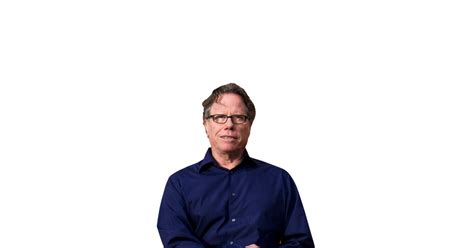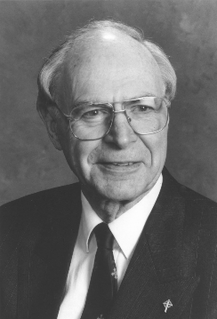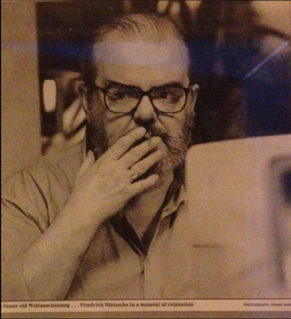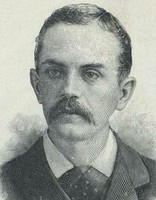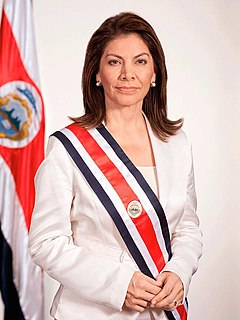A Quote by Jack Handey
I can picture in my mind a world without war, a world without hate. And I can picture us attacking that world because they'd never expect it.
Related Quotes
Each picture with its particular environment and unique personal relationships is a world unto itself - separate and distinct. Picture makers lead dozens of lives - a life for each picture. And, by the same token, they perish a little when each picture is finished and that world comes to an end. In this respect it is a melancholy occupation.
The sense that the meaning of the universe had evaporated was what seemed to escape those who welcomed Darwin as a benefactor of mankind. Nietzsche considered that evolution presented a correct picture of the world, but that it was a disastrous picture. His philosophy was an attempt to produce a new world-picture which took Darwinism into account but was not nullified by it.
Evil was necessary because without it free will was impossible, and without free will there could be no growth—no forward movement, no chance for us to become what God longed for us to be. Horrible and all-powerful as evil sometimes seemed to be in a world like ours, in the larger picture love was overwhelmingly dominant, and it would ultimately be triumphant.
The systems of stereotypes may be the core of our personal tradition, the defenses of our position in society. They are an ordered more or less consistent picture of the world, to which our habits, our tastes, our capacities, our comforts and our hopes have adjusted themselves. They may not be a complete picture of the world, but they are a picture of a possible world to which we are adapted. In that world, people and things have their well-known places, and do certain expected things. We feel at home there. We fit in. We are members.
The Internet is the hope of an integrated world without frontiers, a common world without controlling owners, a world of opportunities and equality. This is a utopia that we have been dreaming about and is a world in which each and every one of us are protagonists of a destiny that we have in our hands.
Because the US has control of the sea. Because the US has built up its wealth. Because the US is the only country in the world really not to have a war fought on its territory since the time of the Civil War ... Therefore we can afford mistakes that would kill other countries. And therefore we can take risks that they can't ... the core answer to why the United States is like this is we didn't fight World War I and World War II and the Cold War here.
How can we satisfy ourselves without going on in infinitum? And, after all, what satisfaction is there in that infinite progression? Let us remember the story of the Indian philosopher and his elephant. It was never more applicable than to the present subject. If the material world rests upon a similar ideal world, this ideal world must rest upon some other; and so on, without end. It were better, therefore, never to look beyond the present material world.
